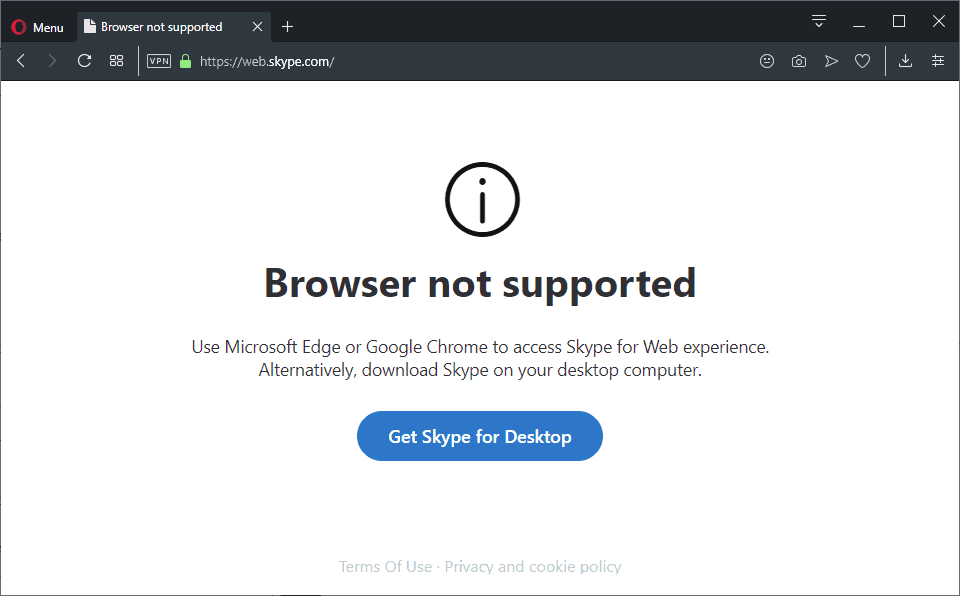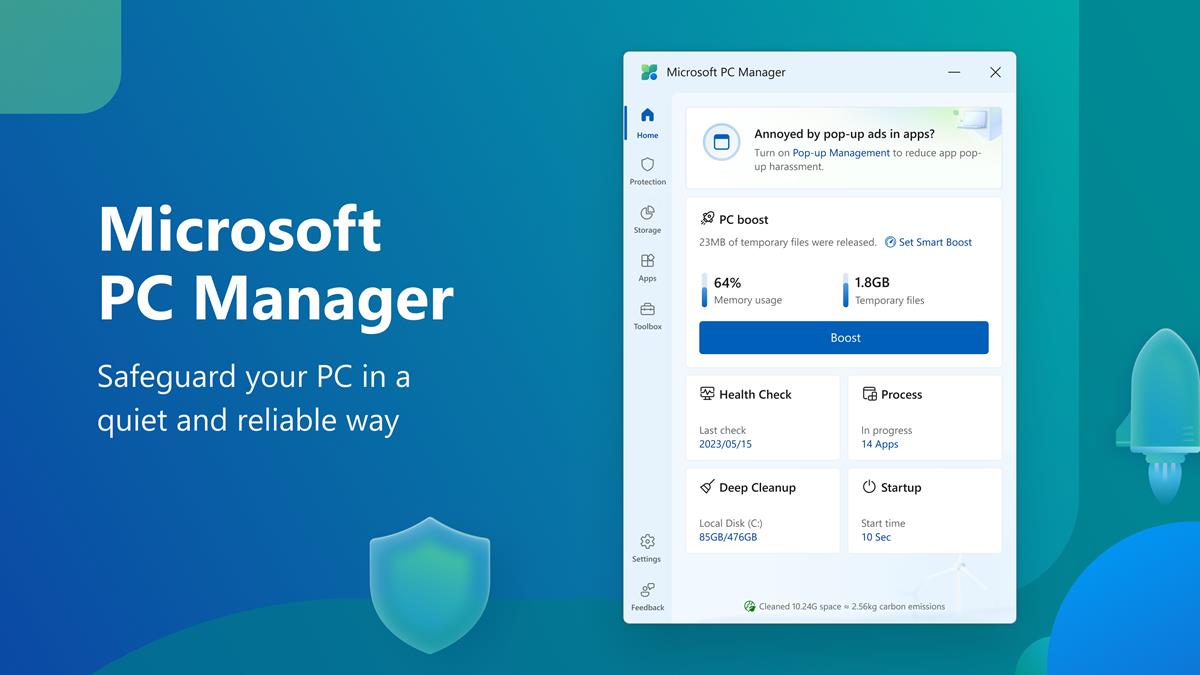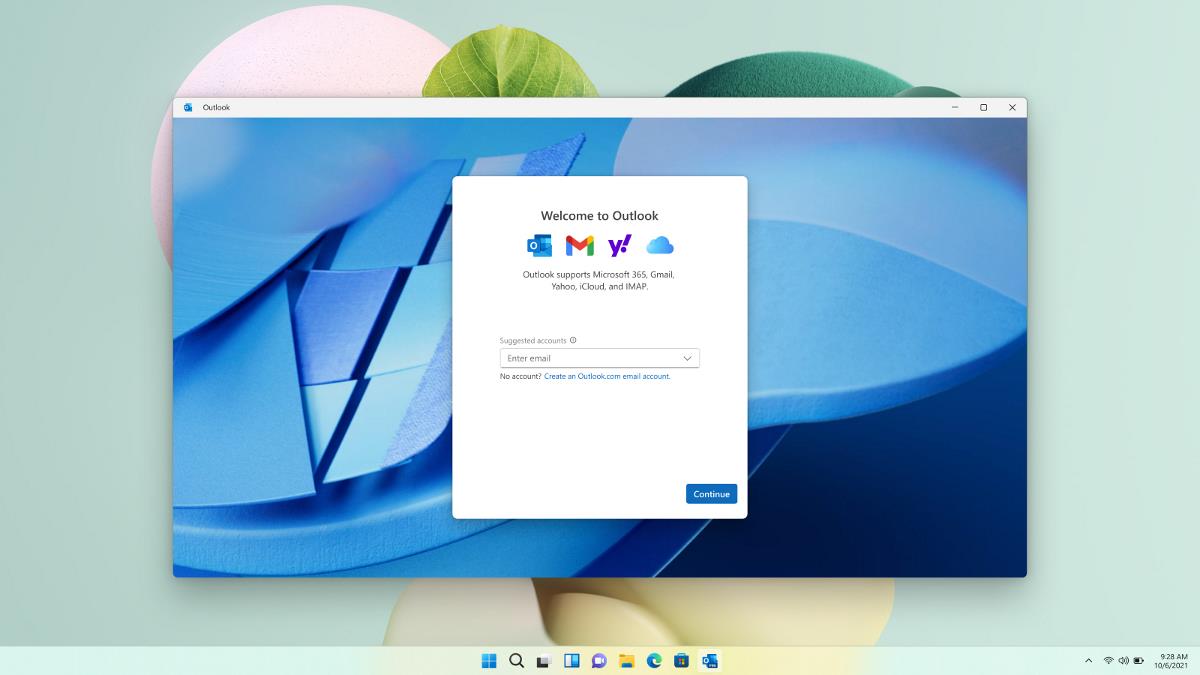The new Skype for Web does not work in Firefox or Opera

Microsoft's Skype team unveiled the new Skype for Web officially yesterday after an extended preview phrase that lasted more than two years.
I noticed during the preview phase that Microsoft limited access to its own Microsoft Edge web browser and Google Chrome. Attempts to access the preview of Skype for Web were met with "browser not supported" messages and suggestions to either use Edge or Chrome, or to download Skype to the computer to use it that way.
Some thought or hoped that Microsoft would make the new Skype for Web compatible with other browsers. If you visit Skype with browsers not supported officially, you are greeted with the "browser not supported" message for most of them.

Most? I tried Firefox, Opera, Vivaldi, and Brave on the site next to Google Chrome and Microsoft Edge. Firefox and Opera did not work while Vivaldi and Brave did. It is a bit puzzling that Opera does not work while Vivaldi and Brave do; all three browsers are based on the same code that Google Chrome is based on, and one would assume that this would be enough to ensure compatibility. Something else seems to be going on apparently that blocks Opera (and Firefox) from access.
Microsoft's announcement on the official Skype Blog confirms the browser requirements and that it works on Windows 10 or Mac OS X 10.12 or higher. Linux is not mentioned, nor are other browsers besides Chrome or Edge.
A simple user-agent change is not enough to make Skype for the Web work in unsupported browsers. Microsoft offers no explanation as to why the new web-based version of Skype does not work in Firefox or Opera.
Microsoft released Skype version 8 for Windows desktop yesterday as well which replaces the existing MSI distributable which installed Skype version 7 on desktop PCs. Download links are provided in the article.
Closing Words
With Microsoft moving Edge to a Chromium-base, things are likely only going to get worse instead of better. The Chromium dominance on the Internet will certainly have an impact on Firefox and web compatibility issues that users of the browser and its makers will face.
As for Skype and Microsoft, I think it is a confession of failure if one of the biggest tech companies in the world won't add support for a web browser with a sizeable market share.
Now You: What is your opinion on the development?























“A simple user-agent change is not enough to make Skype for the Web work in unsupported browsers” … this is wrong. I’m using skype for web in Firefox by simply installing the user agent addon and setting it to Chrome.
On the other hand, Microsoft (and google + amazon) are currently destroying the web for their own profit. I’m running a website by myself, no cookies, no google, no ads, nothing just information.
Skype has been destroyed by Micropuke.
Micropuke used to had the Flight Simulator market locked up, But for some reason they destroyed that.
I believe it is VERY SIMPLE
Microsoft wants everyone to run out and buy a new Windows 10 computer so they can profit.
VERY SOON, nobody will be able to access the internet unless they have a cell phone. This way when you go online “THEY” Will have your phone number. I see the net as soon to be nothing but a HUGE conduit to shove advertising down our throats, Hell, you use adblock and they tell you to disable it if you want into a site. The internet has become a joke, so many old sites I used to go to are DEAD and gone.
NO, SCREW Microsoft.
Hmmmm – on the New Moon variant form Roytam1 (although I’m sure native Pale Moon will also suffice), a user was able to spoof Chrome and get Skype Web to work.
https://msfn.org/board/topic/177125-my-build-of-new-moon-temp-name-aka-pale-moon-for-xp/?page=125&tab=comments#comment-1161578
They fixed it already. Now it doesn’t work in Vivaldi either.
For those on Android trying to use 2 Skype accounts simultaneously, u can download Skype Lite in addition to the regular Skype app.
It’s time to face the truth and bow down to your Internet master. Google Chrome won the browser race. (nobody cares about the feelings of a tiny percentage of computer nerds who still use Firefox).
FYI – Google Chrome is the new Internet Explorer 6.
Look – https://www.theverge.com/2018/1/4/16805216/google-chrome-only-sites-internet-explorer-6-web-standards
FYI – Nonsense and a nonssense article by clickbait verge. Nonsense because Chromium is open source and multi platform. Comparing it with the IE closed source shit which run only on Winblows is just clickbait nonsense.
@kk
Chrome is the new Internet Explorer because it abuses its dominant position to define what the web should be without caring about interoperable web standards. This has nothing to do with being proprietary or not, or being multi-platform or not. The article explains this clearly.
Actually, I think that the article is a little too nice and naive with Google by pretending that in their opinion there’s no intent from Google to crush competitors, even when considering that it was written in January 2018.
Also, the article doesn’t really mention the other problem that even if Chrome was abiding by web standards, they would be increasingly standards mainly dictated by Google, so definitely not something good for users.
Please do not give in to this trend of calling “clickbait” articles you just disagree with (assuming you even read it).
The discussion going on implies that if you don’t use a Chrome based browser, you cannot use Skype, but until now there wasn’t a Skype that worked in a web browser. It’s like the Skype application hasn’t existed all this time and doesn’t continue to exist. Just use that.
@Cassette:
Good point. The only scenarios I can think of where I’d need Skype for Web (as opposed to all the native apps) are either to save battery life, or when trying to make a call on someone else’s computer on a temporary basis. The first (battery-saving) scenario is probably why I like Google’s Duo for Web – it doesn’t kill my iPhone’s CPU.
I have all ready stopped using Microsoft products so no worries here. It’s sad that world is twisting also in this way though.
Android Skype just updated (9 March.) Since when, on 4 devices I’ve tried so far, it doesn’t work.
Some of Google’s services don’t work too well in Firefox either. Probably because these companies are falling back to being assholes and not sticking to open standards. So glad I didn’t waste my time with Skype.
@Shiva said on March 8, 2019 at 11:05 am mentioned,
Secure Messaging Apps Comparison AT https://www.securemessagingapps.com/
I don’t use whatever messaging apps so if I decided to use one perhaps would I refer to the above mentioned dedicated site to get an idea; what I read there about Skype is not incentive to adopt it.
Of course provided the information the site displays is correct :
SKYPE
Does the app secure my messages and attachments? NO
Implicated in giving customers’ data to intelligence agencies? YES
Surveillance capability built into the app? YES
Company’s general stance on customers’ privacy POOR
Company collects customers’ data? YES
App collects customers’ data? YES
Are the app and server completely open source? NO
Can you sign up to the app anonymously? NO
Can you add a contact without needing to trust a directory server? NO
Can you manually verify contacts’ fingerprints? NO
Directory service could be modified to enable a MITM attack? YES
Do you get notified if a contact’s fingerprint changes? NO
Is personal information (mobile number, contact list, etc.) hashed? NO
Can messages be read by the company? YES
Does the app allow a secondary factor of authentication? NO
Does the company log timestamps/IP addresses? YES
Have there been a recent code audit and an independent security analysis? NO
Is the design well documented? NO
Does the app have self-destructing messages? NO
Not really exciting.
I’m searching an alternative for Skype deskop at this point. I’ve just installed SimpleDNSCrypt coupled with AcrylicDNSProxy and I don’t want loose time whitelisting Microsoft domains except for updating Windows.
Signal seems good but if I understand well it requires the relative app and phone number, so Wire is the only choise available, right?
There are also Jitsi and Linphone for what I see.
Here in Italy i have problem to connect with browser ie 11. Message say: Browser not supported 😞
> Microsoft offers no explanation as to why the new web-based version of Skype does not work in Firefox or Opera.
Please consider contacting them and asking about that.
Yes, Martin, please do!
I’m not installing a different browser just to use Skype. I’ll find an alternative. Maybe Wire or Zoom.
Interesting, Skype (Web) worked in Opera during its preview phase but now it suddenly doesn’t.
Opera is based on Chromium so I don’t see why it couldn’t work.
Microsoft is just digging its own grave.
How?
With its braindead bully actions. Abusing their monopoly. I don’t think there’s a shovel, hitmen and lime involved.
Then again, I’ve been wrong before… Many linux developers have mysteriously disappeared lately..
“Many linux developers have mysteriously disappeared lately..”
https://en.wikipedia.org/wiki/Ian_Murdock#Death
The “Ian” of Linux Deb”ian”. We’ll not forget.
Although US police state is probably more to blame than Microsoft shareholders here. Who knows what he didn’t agree to do for that to happen…
just use Wire https://app.wire.com/auth/#login and it’s not Micro..it ..
https://support.skype.com/en/status/ says “Resolved Incidents
March 6, 2019, 4:10 PM — Limited service of multiple services in multiple regions/countries
March 4, 2019, 8:01 AM — Limited service of multiple services affecting multiple products in Europe
I wonder if these resolved incidents means the reported problems in the Ghacks article are still currently valid?
For me in the US, the only reliable Skype is Skype for Desktop currently version 8.40.0.70 .
Living without Skype should not be a problem, except perhaps for those few who work in a Skype-dependent business dominated by video conferencing addicts.
For safe and effective text messaging, sending pictures etcetera, Signal is a great option. For simple web-based phone calls, alternative options also abound.
And if you really feel that not being able to see the live grimaces of your chat partners would cause you to die an instant, terrible and lonely death, then just do a web search for “free Skype alternatives”. Some of them are even open source.
Living without Microsoft, now that might be a more difficult challenge. But consider living without Skype a wonderful first step in the right direction!
@Henk, I confirm : living without Skype should not be a problem. I know something about it given I don’t use Skype nor whatever messaging service and I’ve survived up to this day. Should I ever change my mind that I’d certainly consider ‘Signal’. Because let’s face it : either you avoid messaging apps either you choose the best you can find and from that perspective Skype is low and Signal is high.
Don’t expect the user-agent change to work in the future. Microsoft and Google have joined forces to ruin the web as we know it. As Martin writes: “With Microsoft moving Edge to a Chromium-base, things are likely only going to get worse instead of better. The Chromium dominance on the Internet will certainly have an impact on Firefox and web compatibility issues that users of the browser and its makers will face.”
> A simple user-agent change is not enough to make Skype for the Web work in unsupported browsers.
Today I tried Skype for Web ( https://web.skype.com/ ) with Firefox Quantum version 65.0.2. It did work with User-Agent Switcher add-on ( https://mybrowseraddon.com/useragent-switcher.html ).
You gain access when you change the user agent. Last time, certain features such as video calls did not work. Did you try those?
I’ve managed to start a video call in Firefox (with user agent changed) but when the other side accepts the call on their side, the call drops immediately. Opera doesn’t work at all.
Naturally, it seems that Microsoft want to make Skype for Web on the two mainstream platforms. As Iron Heart mentioned, Gecko-based browsers aren’t worth it anymore. Judging from MS history, it seems that they want to dominate the market, by low browing the competition. Reducing the number of supported platforms, forcing users to adopt approved web browsers and platforms. I plan to migrate to Linux, the move the Microsoft made is blatantly nasty.
Personally I prefer Vivaldi. Given time, the fellows behind other browsers might figure out to iron out the hiccups. I will not use MS Edge and it’s new form, same with Google Chrome. I will use Brave, but since FireFox had joined the dark side, it seems that they got stabbed in the back by MS and Google.
I had reservations when I read that Microsoft had joined the Linux Foundation. Now my suspicions are starting to drop into place. It’s possible that they may pull the rug off under the linux users and linux OSes.
@Barry: “I had reservations when I read that Microsoft had joined the Linux Foundation”
I had more than reservations — to me, that just made the Linux Foundation suspect and an entity to be ignored.
Microsoft will undercut and shove those who use windows 7, 8.1, linux and other web browsers aside. The NPCs had infested the Linux development teams. Things will become complicated and interesting, add a few headaches. Tech Companies are only interested in monopolies and market control.
Microsoft will use dirty tactics,
Actually, wasn’t Edge being delivered to 7 and 8.1 as well? I thought that was a recent development
@Jody Thornton:
Yes, Microsoft said that as part of their larger announcement last year about how they’re “rebuilding Edge from the ground up”. I would be surprised if either of those things actually happen, though.
Working fine in Vivaldi on Linux also, without changing the user-agent. So while Linux may not be mentioned on said page, it seems to work fine anyway.
In that case, users should skip Skype and stick with Firefox.
Fyi, Chrome for Android does not allow extensions = cannot block ads from Google. I’m sticking with Firefox for Android.
@AnorKnee Merce:
To be entirely fair, people shouldn’t be using Skype anyway, regardless of what browsers they do or don’t allow to be used. Microsoft has pretty much destroyed everything that made Skype good.
Chrome can’t, but Bromite can. Also known as Android-Chrome with AdBlock.
@ Iron Heart
I believe Bromite for Android also does not allow Chrome extensions. It only has a built-in Ad-blocker.
……. On Firefox for Android, I can also install the No Coin extension to block coin-miners.
Seems, Yandex for Android allows many Chrome extensions to be installed but Yandex is from Russia, like Opera is from China.
Being a FF user, it is a very harsh step taken by MS. People or at least, I will migrate to some other channel for my daily communication.
If I have to choose between Edge\Chrome and Firefox for messaging we don’t have a problem. https://www.securemessagingapps.com/
Not to mention all the stupid shit you could not turn off in firefox, that made me leave. Hidden extensions and unasked for experiments great way to treat your dwindling loyal base, idiots. Now cue that idiot that always defends all things mozilla.
@420. First off what you’re nattering about isn’t quite relevant to this conversation, but alas you brought it up so ….
If the “loyal” base is dwindling, then how loyal is it? Not too loyal I’d say, and the ones that remain are too small of a group to target. So Mozilla tried to go after another group. Maybe it will all fail. Hey, even I’m uncertain about Firefox after ESR v60, but we’ll see.
@Jody Thornton: “If the “loyal†base is dwindling, then how loyal is it? Not too loyal I’d say”
I was part of that loyal base. “Loyal” meaning that I used, advocated for, and contributed both time and money to Firefox practically from day 1. I don’t think my loyalty could be questioned.
The problem isn’t my lack of loyalty. Firefox abandoned me, not the other way around.
@John Fenderson
Problem was, you as a target (in other words targeting power users) was no longer viable or sizable enough to warrant exerting energy towards it. I’m sure that if Firefox retained XUL and kept its Australis UI, Microsoft and Google would still be teaming up right now for Skype, and that Google Earth would still only run on Chrome. Mozilla needed to do what it saw fit to say relevant, and aim for mobile-friendly users. So that’s what they did.
Now if they’re failing because of that, well Mozilla was going to fail anyways, so you’re right that they abandoned you. It’s like the field I work in. Radio basically ignores the 55 plus market. Why? Because advertisers don’t want them. All the research point to older folks having more certainty and stability in their buying habits; which means they aren’t generally swayed by advertising. So you may have liked that oldies station that went and changed formats to skew younger. You may have had millions of oldies listeners, but if advertisers don’t want them, then they ain’t worth a damn.
So Mozilla may have provided a browser that gave all sorts of UI customization options and allowed all sorts of XUL add-ons. And all five hundred power users LOVED Firefox. But if I found out that the there are gazillions of mobile-firendly users that would like a simple, straightforward browser that syncs with my phone, works with all sites and doesn’t need many plugins – and isn’t Google, guess who I’m going to target?
XUL who? UI customization what? Progress and Status bar thingys? What’s that?
See what I mean?
@Jody Thornton: “Problem was, you as a target (in other words targeting power users) was no longer viable or sizable enough to warrant exerting energy towards it.”
I’m not so sure this is actually true. It looks to me like Firefox managed to chase off most power users through years of neglect and missteps. Mozilla just decided that they didn’t want to (or weren’t able to) do what is necessary to win them back. They made the determination that it’s easier to address a different market entirely.
In any case, that’s neither here nor there. We were talking about loyalty, and in my view, it’s Mozilla who abandoned their loyal users, not the other way around. They’re hoping that they’ll be able to win away the loyal users of Chrome to make up for those numbers, but I think they’ve made a rather large miscalculation and have just baked in their decline.
I tried many times to give a chance to Firefox after 57 Quantum, but it just feels like a shittier Chrome clone.
It has the UI of Chrome, a bit more customization on that part, but overall useless on the long run.
Loads websites A LOT slower than Chrome.
One plus for Firefox is that on youtube.com, transition of videos between full screen and non-full screen is seamless, whereas in Chrome there is a freeze for 1-2 seconds (it applies to all browsers based on Chrome).
Some websites work better on Firefox and struggle on Chrome, others work better on Chrome and struggle on Firefox.
Overall, I think Firefox is inherently just slower than Chrome, even if they stripped the XUL platform off of it, it still feels sluggish.
Chrome on the other hand somehow feels faster and yet bloated (in memory usage) with lots of useless Google features. If there was a Chrome Lite, that has almost everything stripped and only allows extensions, that would be the perfect browser for me.
@Wellan
You can customize a lot of the rendering patterns on Firefox to make pages load more instantly, or at least more responsively. Not everything loads faster on Chrome. I would rather let the page reflows happen, then load the page all at once.
It makes no sense not to work on Opera since it’s Chromium. I have a feeling they will sort this out eventually.
As for Mozilla, they brought this to themselves, and they deserve it. Once Microsoft switches Edge to Blink+V8 nobody will give a crap about Mozilla’s irrelevant browser and whether it loads a broken page or does not load it at all. As long as it works in Chromium and maybe IE everyone will be happy.
@Yuliya:
So what did Mozilla do to bring this upon themselves?
Lure users away by not listening to what their userbase wants and forcing telemetry and updates, therefore falling into irrelevance – see their market share trend for the past few years, continuous decline. If people would have liked what mozilla had done to Firefox they would use it, but they don’t. On the other hand Google has started to listen, to the point of reverting user-unwanted changes and implementing useful features into Chromium – off the top of my head, a tiny page loading progressbar bellow the favicon, proper control over media autoplay, PiP, etc..
@Yuliya:
I think they actually wanted a different user base. The UI customizing, XUL-loving crowd is shrinking, and it’s no long attractive to developers any more. Notice EVERYONE makes flat-looking responsive apps now? 3D and Vista like UIs are out. Telemetry is here to stay. Traditional avenues of selling licensed software are drying up, and everyone wants stuff for free, so companies need new ways of acquiring revenue. Gathering information on their userbase allows them to figure out what features are used and considered relevant. Also this information can be used to leverage investment from other companies.
And there still are some that like what Firefox is doing. Not everyone wants Australis back.
@Jody Thornton: “companies need new ways of acquiring revenue”
Let’s say this is actually true. If those “new ways of acquiring revenue” include spying on people, then that makes those companies actively bad and to be avoided. Mozilla is walking a fine line on this, but they haven’t quite crossed it yet, except for their horrible “non-telemetry telemetry” to count how many people don’t want to send telemetry. That’s clearly a step over the line.
“Not everyone wants Australis back.”
I know I don’t, but there’s an awful lot of other functionality that I would need back in order to be OK with using the new Firefox as my daily driver.
I wasn’t refering to the UI*, as I personally did not like australis, but much prefered the v4 looks, which were a copy of what Opera Presto looked like. I’m more for the broken addons which are not available as WE, or the actual poor implementation which mozilla has done – uB0 always resets its filter database, not matter what I do, on Fx57. Clean install, x64, x86, portable, running from SSD, from HDD, from RAM disk, on 7, 8.1, LTSB 1607, Server 2008R2, 2012R2, 2016, doesn’t matter, uB0 is broken in Fx. There is about a 50% chance to lose the filter database on browser restart. This never happened with the XUL extension. And it’s not uB0, I’ve heard from people using one of those scripting *Monkey extensions having the same problem, so it’s Firefox. Chromium doesn’t have this problem.
Telemetry once disabled should mean disabled. The fact that mozilla attempted to send extra telemetry for those people, all this while hiding the fact that they were doing (no, two messages on bugzilla does not count as making this publicly available so anyone who is against this stops using this malware browser before you deploy this crap on their PC) is outright dissgusting and mozilla can fuck off for this very reason. Same goes for those rabbid mozillians constantly defending this behaviour, because there are actually people defending this nonsense.
* Flat (read:lazy) design trend is going away. Look at iOS, MacOS, Windows 10 and how it evolves with every new public release, even Google’s Material Design 2.0 (or however they call it in Android 9) has transuscent areas, minus the gaussian blur, few examples being Messages, Photos, Contacts, Phone, Gmail.. I assume the next logical step would be to add gaussian blur to those surfaces.
Note: there might be typos in this very comment, many in fact. I’ve written it after a night shift, and quite frankly I can’t be bothered to re-read it and correct them. And it’s already 11:30 here in UA..
No worries about the spelling or typos @Yuliya. Great reading as always. I did like the UI of the first two Firefox releases. More of a classic browser. UI-wise, Opera v8.5 was most customizable to my tastes.
Unless Google have paid or MS have simply agreed to not to work on anything other than chrome. Don’t put anything past these scummy companies these days.
This is sad, but not entirely unexpected. If you put mobile and desktop together, Firefox’s market share is below 5% already. The additional time it would take to make the site work in Gecko-based browsers isn’t worth it anymore. I mean, why bother? I think Firefox as we know it is on its way out, and Mozilla might switch to Blink in the mid-term, at least if they want to remain in the browser sphere. I can also see them fully getting into IoT, while keeping Firefox up only as long as it is still financially feasible.
I don’t understand why the site isn’t allowed to work in Opera, though? Doesn’t Opera use Blink? It should work right away.
Mobile version of Skype is just a link to app store, so smartphone users are irrelevant in this context. Firefox still has around 8.7% of the worldwide desktop market. Isn’t that user base worth supporting?
> Firefox still has around 8.7% of the worldwide desktop market. Isn’t that user base worth supporting?
No.
Reason: Most people have no sentimental feelings for the browser they use, and will switch to another one in a heartbeat once their current browser “stops working”. Chrome being advertised on every Google site was enough to make most people switch, what effect do you think will sites not working in Firefox at all have?
@Iron Heart: “what effect do you think will sites not working in Firefox at all have?”
Across society? I don’t know. Personally? It would mean that I wouldn’t be using those sites.
@John Fenderson
What John Fenderson does and what Joe Average does is not always the same. Most people are just switching browsers if they encounter something not working as it should.
@Iron Heart: “What John Fenderson does and what Joe Average does is not always the same.”
Indeed, which is why I took care to make that exact distinction. As I said, I can’t comment on what Joe Average wants. And, to be honest, I no longer actually care. The state of the industry has become so hostile against me and my needs that I’m purely in a sort of “self preservation” mode at this point. Joe Average can fend for himself.
@John Fenderson
> Joe Average can fend for himself.
Very naive indeed. The browser market is unlike many other markets, you see. As a small luxury car manufacturer, you might be able to survive despite selling a relatively low number of cars. If you are a developer whose browser has a small market share, your browser will stop to work on many occasions, as web developers no longer optimize their websites for your engine.
If Firefox’s market share continues to decline, more and more websites won’t be tested against it. They will simply refuse to work. And no, user agent changes aren’t the solution. If a website supports features only available in Blink, Firefox won’t work no matter which user agent you set.
You are fully dependent on what the vast majority of Joe Averages does.
@Iron Heart
I commend you on your response. Your final line says it all.
8.7% of hundreds of millions is still quite a larger user base. As for ‘sentimental’ being a factor, that sounds more like a diversion than anything. The fact is, there are very practical and stark reasons why more diversity is better than a monoculture.
If we (the entire online community) do lose Firefox and its Gecko engine, we will all be stuck with Blink as the dominant browser engine. We’ve recently seen Opera bail out of Presto, Microsoft bail out of Trident, both giving up and moving to a Chromium base.
We’re just a heartbeat away from being back in a situation very similar to when IE was primary way we all interacted with the Internet. Microsoft ignored common web standards and crappy ActiveX based sites were too common. It remains to be seen if the consortium of corporations that manage Blink will take us back down the rabbit hole we escaped from back before Mozilla brought back the browser wars.
@svim, Very well said, and I agree 100%.
Oh no, this is a sad, sad day. Oh well, WIRE works: https://app.wire.com/auth/#login